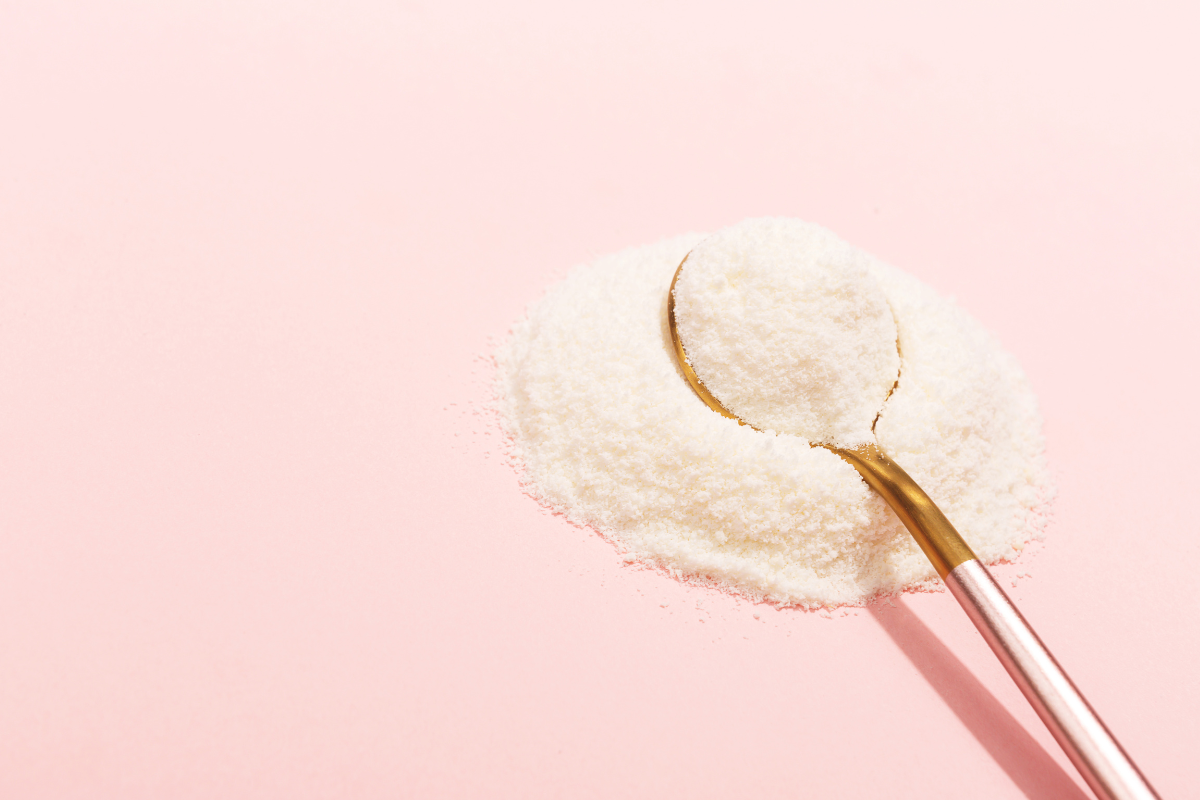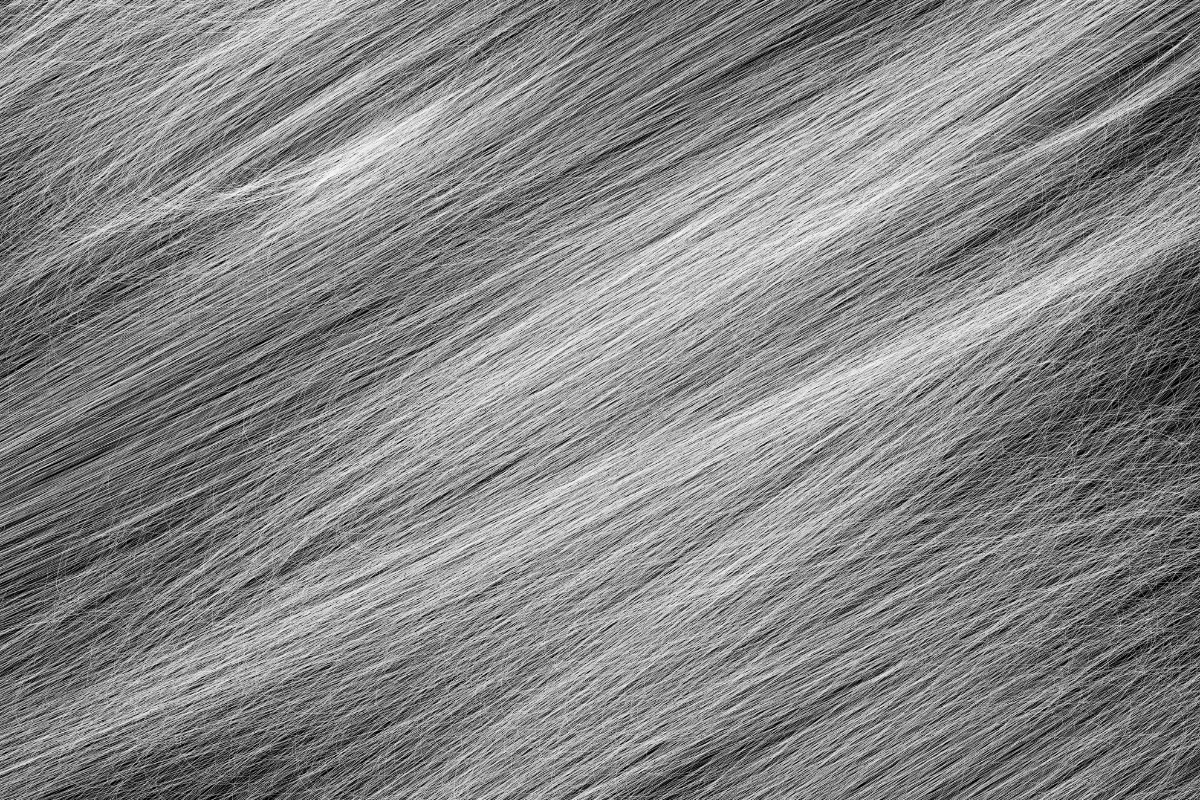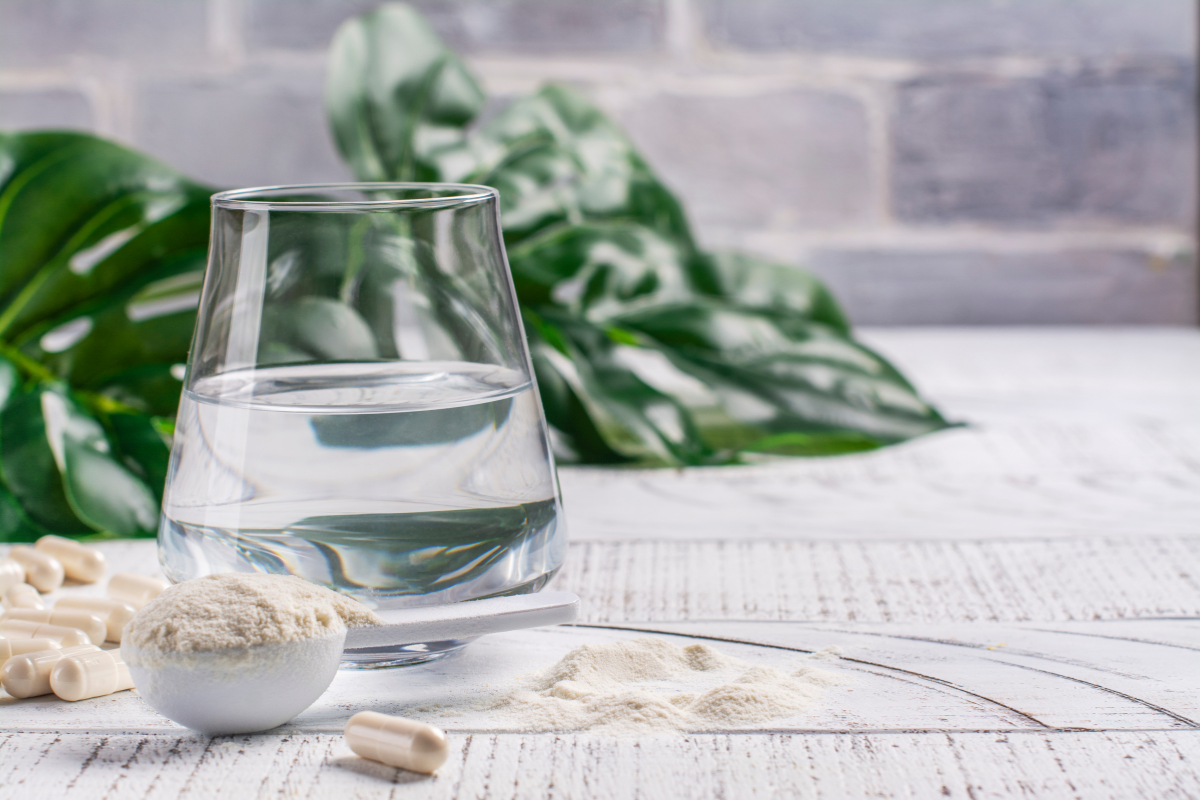Collagen & dietary supplements - Clean Label

Collagen & dietary supplements - Clean Label
The best natural food supplements without additives with collagen, vitamins and minerals for your health & beauty
Collagen, vitamins & minerals CLEAN LABEL - The idea of a dietary supplement is that it should do the body good, every day! That's why our food supplements only contain active ingredients, which bring you benefits! WE CALL IT CLEAN LABEL!
Every day your body creates skin, muscles and bones. It pumps blood around the body carrying nutrients and oxygen, and it constantly sends out nerve signals. It also makes chemical messengers that are shuttled from one organ to another and issues the instructions that help keep you alive, to name a fraction of what your body does for you!
But to be able to do all this, your body requires important nutrients. These include at least 30 vitamins, minerals and other nutrients that your body needs but cannot manufacture on its own in sufficient amounts.
Vitamins and minerals are considered essential nutrients - because they act in concert and perform hundreds of different roles in the body. They help strengthen bones, heal wounds and optimize your immune system. Vitamins and minerals also convert food into energy and repair cell damage.
VITAMINS AND MINERALS - IMPORTANT NUTRIENTS FOR YOUR BODY
Are you getting the vitamins and minerals you need?
Vitamins and minerals are important nutrients and have hundreds of roles in the body. There's a fine line between getting enough of these nutrients (which is healthy) and getting too much (which can end up hurting you). Eating a healthy diet is a good way to get adequate amounts of the vitamins and minerals you need. But sometimes it may be necessary to supplement with food supplements.
Why are vitamins and minerals important?
Vitamins and minerals are often called micronutrients because your body only needs small amounts of them. But if you don't get these small amounts, you're bound to get sick sooner or later. Here are some examples of diseases that can be caused by vitamin deficiency:
Scurvy. Ancient sailors could live for months without fresh fruit or vegetables - the main sources of vitamin C - causing bleeding gums and lethargy.
Blindness . In some developing countries, people still go blind from vitamin A deficiency.
Rakit. A lack of vitamin D can cause rickets, a condition characterized by soft and weak bones that can lead to a deformed skeleton such as bowed legs. Rickets means that calcium is not stored in the bones in the usual way during growth. In order for this to happen, sufficient calcium is required in the blood. This, in turn, requires sufficient vitamin D.
While a lack of essential vitamins and minerals can cause significant damage to your body, getting adequate amounts of them can be beneficial. Some examples of these benefits:
Strong legs. A combination of calcium, vitamin D , vitamin K, magnesium and phosphorus protects your bones against fractures.
Prevents birth defects. Taking a dietary supplement with folic acid (methylated folate) early in pregnancy helps prevent brain and spinal cord damage in the fetus.
Healthy teeth. The mineral fluoride not only helps with bone formation, but also keeps the teeth healthy by preventing caries (cavities in the teeth).
What is the difference between vitamins and minerals?
Although they are all considered micronutrients, vitamins and minerals differ. Vitamins are organic and can be broken down by heat, air or acid. Minerals are inorganic and retain their chemical structure.
So why does this matter? This means that the minerals in soil and water easily find their way into your body through the plants, fish, animals and liquids you consume. But it's more difficult to transport vitamins from food and other sources into your body because cooking, storage, and exposure to air can inactivate these more fragile compounds.
Can certain vitamins and minerals affect each other?
Many micronutrients interact. Vitamin D enables your body to absorb calcium from foods passing through your digestive tract rather than taking it from your bones. Vitamin C helps you absorb iron.
However, the interaction between micronutrients is not always good. For example, vitamin C blocks your body's ability to absorb the essential mineral copper. And furthermore, a greater intake of manganese can affect iron absorption.
What water soluble vitamins are there?
Water-soluble vitamins are found in the "watery" parts of the foods or dietary supplements that you eat. They are absorbed directly into the bloodstream when food is absorbed and broken down during digestion.
Since a large part of your body consists of water, many of the water-soluble vitamins circulate easily around the body. Your kidneys continuously regulate the levels of the water-soluble vitamins, and the excess of these water-soluble vitamins is excreted in the urine.
WATER SOLUBLE VITAMINS
B vitamins:
- Biotin (vitamin B7)
- Folic acid (folate, vitamin B9)
- Niacin (vitamin B3)
- Pantothenic acid (vitamin B5
- Riboflavin (vitamin B2)
- Thiamine (vitamin B1)
- Vitamin B6 (pyridoxine)
- Vitamin B12 (cobalamin)
And:
- Ascorbic acid (vitamin C)
What do the water-soluble vitamins do?
Although water-soluble vitamins have many functions in the body, one of the most important is to help release the energy found in the food you eat. Others help keep the tissues healthy. Here are some examples of how different vitamins help you maintain health:
"PRODUCES" ENERGY FROM FOOD. Several B vitamins are key components of certain coenzymes (molecules that help enzymes) that help release energy from the food you eat.
PRODUCES ENERGY. Thiamin, riboflavin, niacin, pantothenic acid and biotin are important for the body's energy production.
BUILDING PROTEINS AND CELLS . Vitamin B6, vitamin B12 (cobalamin) and folic acid metabolize amino acids (building blocks of proteins) and help the cells to multiply.
MAKE THE COLLAGEN . One of the many roles played by vitamin C is to help make collagen , which is important in wound healing, supports blood vessel walls, and forms a base for teeth and bones.
Contrary to popular belief, some water-soluble vitamins can remain in the body for long periods of time. You probably have several years' worth of vitamin B12 in your liver. And even folic acid and vitamin C reserves can last for more than a couple of days.
In general, however, water-soluble vitamins should be taken every day.
Just be aware that there is a small risk of consuming too much of some of these micronutrients through supplements, which can be harmful. For example, very high doses of vitamin B6 - can damage nerves, causing numbness and muscle weakness.
What are the fat soluble vitamins?
Instead of being easily absorbed into the bloodstream like most water-soluble vitamins, the fat-soluble vitamins enter the blood via lymphatic channels in the intestinal wall. Many fat-soluble vitamins are transported through the body only under the "escort" of proteins that act as carriers.
ABSORPTION OF FAT SOLUBLE VITAMINS – ALL STEPS IN THE BODY
- Food containing fat-soluble vitamins is consumed.
- The food is digested by stomach acid and then travels to the small intestine, where it is further absorbed. Bile is needed for the absorption of fat-soluble vitamins. This substance, produced in the liver, flows into the small intestine, where it breaks down fats. Nutrients are then absorbed through the wall of the small intestine.
- Upon absorption, the fat-soluble vitamins enter the lymphatic vessels before entering the bloodstream. In most cases, fat-soluble vitamins must be combined with a protein in order to be transported through the body.
- These vitamins are used throughout the body, but the excess is stored in the liver and fatty tissues.
- Your body can further remove these vitamin reserves and release them into the bloodstream from the liver.
Fatty foods and oils are sources of the four fat-soluble vitamins. Within your body, the adipose tissue and liver act as the main stores of these vitamins and release them when needed.
To some extent, you can think of these vitamins as time-released micronutrients. It is possible to consume them occasionally, perhaps in doses spaced weeks or months apart rather than daily, and still meet the body's need for these vitamins.
FAT SOLUBLE VITAMINS
-
vitamin A (retinol)
- Vitamin D
- Vitamin E
- Vitamin K
What do the fat soluble vitamins do?
Together, this vitamin quartet helps keep your eyes, skin, lungs, gastrointestinal tract and nervous system in good condition. Here are some other important roles these vitamins play:
FORM THE SKELETON . Bone formation would be impossible without vitamins A, D and K.
PROTECTS THE SIGHT. Vitamin A also helps keep cells healthy and protects your vision.
INTERACT WITH EACH OTHER. Without vitamin E, your body would have difficulty absorbing and storing vitamin A.
PROTECTS THE BODY . Vitamin E also acts as an antioxidant (a compound that helps protect the body against damage from free radicals).
Because fat-soluble vitamins are stored in the body for long periods of time, toxic levels can build up. However, it is very rare to get too much of a fat-soluble vitamin from food alone.
What are the most important minerals?
The body needs, and stores, fairly large amounts of minerals. These minerals are no more important to your health than trace elements; they are just present in your body in larger amounts.
Trace elements are the minerals that we need in smaller amounts (< 100 mg/day) and that have clear biochemical functions in the body. Important trace elements are iron , zinc , copper, selenium , iodine, cobalt and molybdenum.
Minerals are part of the skeleton, regulate membrane potentials and thus nerve/muscle function, blood pressure and more. Trace elements are part of many enzymes and are needed to maintain the body's homeostasis.
The minerals travel through the body in different ways. Potassium, for example, is quickly absorbed into the bloodstream, where it circulates freely and is excreted by the kidneys, much like a water-soluble vitamin. Calcium is more like a fat-soluble vitamin because it requires a carrier for absorption and transport.
MINERALS:
- Calcium
- Chloride
- Magnesium
- Phosphorus
- Potassium
- Sodium
- Sulfur
What do minerals do in the body?
One of the most important tasks for the minerals is to maintain the correct fluid balance in the body. Sodium, chloride and potassium take the lead in doing this. Three other minerals - calcium, phosphorus and magnesium - are important for healthy bones. Sulfur helps stabilize protein structures, including some of those that make up hair, skin, and nails.
Having too much of one mineral can result in a deficiency of another. Here are two examples:
TOO HIGH SALT INTAKE (sodium) . Calcium binds to an excess of sodium in the body and is secreted when the body feels that sodium levels need to be lowered. This means that if you consume too much sodium through table salt or processed foods, you may lose too much calcium as your body gets rid of the excess sodium.
EXCESS OF PHOSPHORUS . Likewise, too much phosphorus can inhibit your ability to absorb magnesium.
What trace elements are there?
A thimble can easily contain all the trace minerals normally found in the body. Yet they are just as important as the minerals calcium and phosphorus, each of which accounts for more than a pound of your body weight.
TRACK TOPICS:
- Chromium
- Copper
- Iodine
- Iron
- Manganese
- Molybdenum
- Selenium
- Zinc
What do trace elements do?
Trace elements perform a variety of tasks. Here are some examples:
- Iron is best known for transporting oxygen throughout the body.
- Zinc prevents blood clots, is important for taste and smell and strengthens the immune response.
- Copper helps form several enzymes, one of which helps with iron metabolism and the creation of hemoglobin, which carries oxygen in the blood.
The other trace elements perform equally important jobs, such as helping to counteract damage to the body's cells and forming parts of important enzymes or improving their activity.
Trace elements interact with each other, sometimes in ways that can trigger imbalances. Too much of one trace element can cause or contribute to a deficiency of another. Here are some examples:
- A higher intake of manganese can worsen iron deficiency. Having too little manganese can also cause problems.
- When the body has too little iodine, important thyroid hormones cannot be formed (hypothyroidism), which causes weight gain and other health problems such as fatigue, hair loss, brittle nails, memory problems, PMS symptoms, and constipation. Due to the fact that the metabolism/metabolism goes down with iodine deficiency, frostbite and cold hands, feet can also be a sign. The problem worsens if the body also has too little selenium.
What are antioxidants?
Antioxidants are a term for all compounds that can counteract unstable molecules such as free radicals that damage your DNA, cell membranes and other parts of the cells.
Your body cells naturally produce lots of antioxidants to protect the body. The foods you eat - and perhaps some of the supplements you take - are another source of antioxidants. Carotenoids (such as lycopene in tomatoes and lutein found in kale) and flavonoids (such as anthocyanins in blueberries, quercetin in apples and onions, and catechins in green tea) are antioxidants. Vitamins C and E and the mineral selenium also have antioxidant properties.
Why can free radicals be harmful?
Free radicals are a natural by-product of energy metabolism and are also generated by ultraviolet rays, tobacco smoke and air pollution. They lack a full complement of electrons, making them unstable, so they steal electrons from other molecules, damaging those molecules in the process.
Free radicals have a well-deserved reputation for causing cellular damage. But they can also be helpful. Our immune cells use the free radicals to fight infections, viruses, bacteria and damaged body cells. Vitamin C can then disarm the free radicals.
Why are antioxidants important?
Antioxidants can neutralize marauders such as free radicals by giving up some of their own electrons. When vitamin-C or vitamin-E do this, they can prevent a protein, gene or cell membrane from escaping damage. This helps break a chain reaction that can affect many other cells.
It is important to realize that the term "antioxidant" reflects a chemical property rather than a specific nutritional property.
- Tags: Kollagen/Collagen





